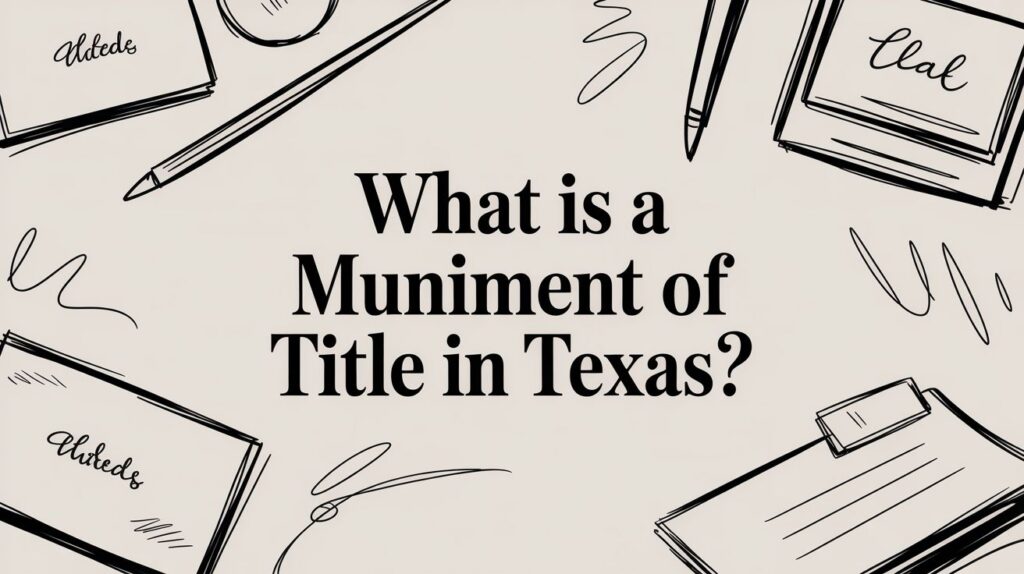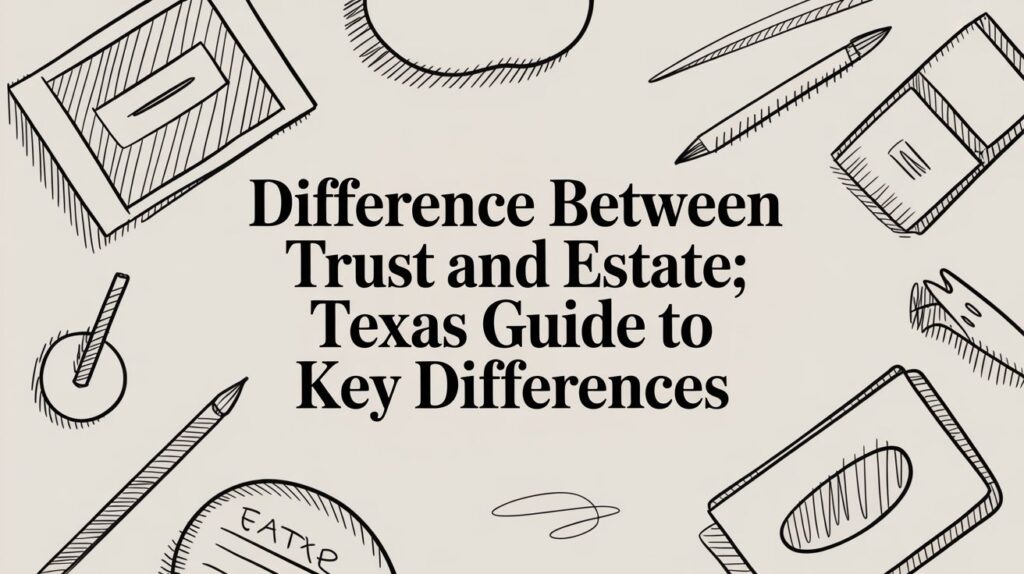Across Texas, families pass down land for generations — acres of pasture, farmland, or ranch property that once symbolized legacy, roots, and family pride. Yet as time passes, these once-cherished plots often become “forgotten acres.” The original owners die, their heirs scatter, and no one pays much attention to the paperwork. Years later, when a new generation finally looks into the title or tries to sell the land, they discover it’s tangled in probate, unclear ownership, and long-dormant records. What follows is a complicated mix of Texas probate law, family conflict, and often a race against time to keep property from slipping away.
Understanding what happens to untouched family land during probate in Texas reveals just how vital it is to handle inheritance issues early. When land is left unmanaged or unclaimed after death, legal, financial, and emotional complications quickly pile up — especially when heirs don’t agree on what to do next.
How Family Land Falls Into Probate Limbo

In Texas, probate is the legal process that transfers a deceased person’s property to their rightful heirs or beneficiaries. It ensures debts are paid and titles are properly passed down. But when family land sits untouched for decades, the process can become far more complex. This usually happens for three reasons: no will, unclear ownership, or heirs who never finalize the estate transfer.
Many families assume land automatically passes to the next generation. While technically true under Texas intestate succession laws, that transfer must still go through probate to be legally recognized. Without probate, the deed remains in the deceased person’s name — and even though the heirs may believe they “own” the property, they don’t have the legal authority to sell, lease, or even pay taxes in their own name. Over time, this leads to confusion, unpaid taxes, and potential loss of the land altogether.
How Does Probate Work
When there’s no will, probate courts must rely on state intestacy rules. These rules determine how land gets divided among the surviving spouse, children, or other relatives. The process often splits ownership among multiple heirs, giving each a “fractional interest” in the land. For example, a 100-acre family property could end up jointly owned by five siblings, each holding a 20% interest. That may sound simple, but once those siblings pass away, their shares often split again among their children — and within a few generations, the same land may have dozens of partial owners. This phenomenon, known as “heirship property,” is one of the biggest challenges in Texas probate.
Heirship property creates a legal and practical nightmare. Every co-owner technically has equal rights to the property, but major decisions — like selling or developing it — require unanimous agreement. And when family members live in different cities, states, or even countries, reaching that consensus can be nearly impossible. That’s how once-valuable family land ends up abandoned, overgrown, and forgotten, its ownership frozen in time.
Why Probate Gets Complicated With Rural and Inherited Land
Probate involving rural or inherited land tends to be more complicated than urban property because of unclear documentation and emotional ties. Older generations often relied on informal agreements instead of proper legal deeds. Some families never recorded ownership transfers, especially in rural counties. When the last known owner dies, the title may still reflect someone who’s been gone for half a century.

In Texas, property must have a clear “chain of title” before it can be sold or transferred. That chain is broken when probate was never completed or when heirs fail to record their ownership. The result is a property that exists in legal limbo — still valuable, but unusable. Banks won’t finance it. Title companies won’t insure it. And prospective buyers won’t touch it until ownership is resolved.
These issues are compounded by property taxes. Counties expect taxes to be paid regardless of ownership confusion. If no one pays them, the county can eventually foreclose and auction the land. Many families lose their inheritance this way, simply because no one took legal responsibility after a relative’s death. Once sold, reclaiming the land is nearly impossible.
Another complicating factor is sentimental attachment. Heirs may agree that the land should “stay in the family,” but they rarely agree on how to maintain or use it. One heir may want to sell their share, another may want to lease it, and another might want to build a home. The longer these disagreements go unresolved, the more difficult it becomes to settle the estate.
In some cases, the land might have hidden value like oil or mineral rights. Because Texas law allows separate ownership of surface and mineral rights, heirs may find themselves sharing one portion of the estate but fighting over another.
Clearing Title and Establishing Ownership: The Legal Path Forward
The first step in dealing with forgotten family land is establishing clear ownership through the probate court. Even if the deceased passed away decades ago, probate can still be filed. The process depends on whether the person left a will and how much time has passed since their death.

If a valid will exists, the court can open probate to transfer the land according to its terms. But if there’s no will — which is often the case — the court must determine who the rightful heirs are. This process is called a “Determination of Heirship.” It requires testimony, affidavits, and often genealogical evidence to trace the family line. Once the court issues its judgment, the heirs are officially recognized as owners of their respective shares.
For smaller estates or long-deceased owners, Texas law offers alternatives like an “Affidavit of Heirship.” This is a sworn statement signed by people familiar with the family history, which outlines who inherited the property. It’s a faster, less expensive option than formal probate, but it only becomes fully reliable after being recorded and remaining unchallenged for several years.
After ownership is established, heirs often need to file a “Partition Action” if they can’t agree on how to manage or divide the land. The court can either physically divide the property (if practical) or order a sale and distribute the proceeds among the heirs. While this solution may seem harsh, it’s sometimes the only way to resolve disputes when dozens of people share fractional interests.
Heirs should also file updated deeds in the county’s property records office. This step is essential because it finalizes the ownership change and allows property taxes, mineral royalties, and future transactions to proceed legally. Without it, the land remains in legal limbo, perpetuating the same problems for the next generation.
Preventing the Next Generation of Forgotten Acres
While clearing title through probate is possible, prevention is far easier and less costly. Families can take proactive steps to avoid leaving behind forgotten land and tangled ownership for future generations. The most effective approach is proper estate planning — drafting wills, creating trusts, and recording deeds that clearly define how property will transfer upon death.
A will allows an individual to name specific heirs and appoint an executor to handle probate quickly and efficiently. Trusts go a step further, bypassing probate entirely and transferring property automatically upon death. Families who own large rural tracts often use family trusts or limited liability companies (LLCs) to manage land collectively. This not only preserves ownership but also ensures taxes and upkeep are handled systematically.
Another crucial step is updating property records regularly. Even small changes — like adding a spouse to the deed, removing a deceased relative, or clarifying mineral rights — can prevent years of confusion later. Filing deeds promptly keeps ownership current and prevents old names from clogging up title history.
Families should also discuss their wishes openly. Many disputes arise because older relatives never explained who should inherit what or how land should be used. Transparent communication and written documentation save everyone time, money, and resentment later on. In Texas, the law offers plenty of tools to preserve land ownership — but only if families take action while the owner is still alive.
Lastly, heirs should stay alert to property tax notices. Ignoring tax bills can erase generations of family legacy in a single foreclosure sale. Assigning one responsible family member or creating a family trust account to pay taxes each year ensures that “forgotten” doesn’t turn into “lost forever.”
Securing Your Family’s Land Legacy in Texas Probate
The story of forgotten family land in Texas is more common than most realize. Across rural counties, thousands of acres sit untouched — owned by people who don’t even know they share the title, burdened by unpaid taxes, or frozen in decades-old probate files. What begins as an inheritance can easily become a headache if no one takes responsibility for proper legal transfer.
Probate exists to prevent exactly that — to ensure property changes hands clearly and lawfully. But when families delay it or skip it entirely, the land they hoped to preserve becomes the very thing that divides them. Texas law provides clear pathways through heirship proceedings, affidavits, and probate administration, but those paths grow steeper with time.
In the end, the fate of forgotten acres depends on action. The sooner heirs take steps to clarify ownership, the easier it becomes to reclaim the property’s value and protect the family legacy. Whether it’s updating a will, filing a deed, or initiating probate after years of silence, doing something is always better than doing nothing. Because in Texas, land is more than just dirt — it’s history, inheritance, and identity. Letting it slip away to neglect or confusion isn’t just a legal failure. It’s the quiet loss of a family’s story written across acres that once meant everything.








